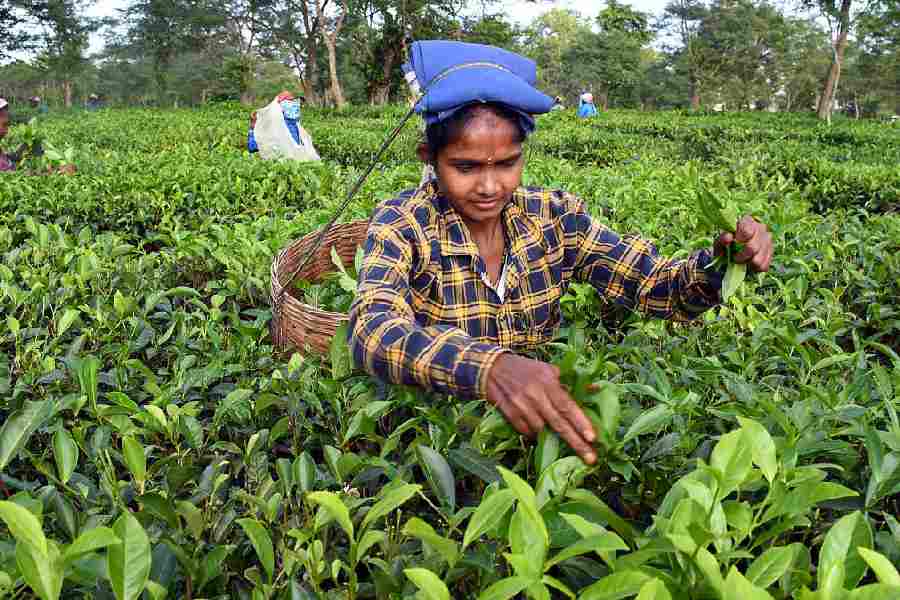Low yield in tea plantations across north Bengal because of inclement weather has started affecting the earnings of workers associated with the tea industry.
On Friday, the Trinamool Cha Bagan Sramik Union sent a letter to state labour minister Moloy Ghatak, seeking the state’s intervention to tide over the crisis.
“The workers are getting impacted because of the situation and we believe the state should help,” Nakul Sonar, the Union chairman, said.
“In most years, during these months, production goes on full swing in tea gardens. Along with permanent workers, gardens usually engage casual workers for plucking and other tasks. This year, the situation is so bad that in some gardens even the permanent workers are not getting jobs every day,” Sonar added.
Several gardens in the Dooars have stopped providing jobs to the workers on all six days of the week with inadequate quantity of tea leaves at the plantations.
During the past few weeks, tea planters have repeatedly expressed concern over the scarce rainfall and pest attacks. Production has declined in March and April, months it usually starts rising.
In the Dooars, sources said, at least five gardens are providing jobs to workers for three days a week instead of six. In a couple of other gardens, they are working for four days.
“Tea estates like Birpara, Joybirpara, Tulshipara, Garganda and Dhumchipara, all in Madarihat block, are finding it tough to engage the entire workforce on all six days in a week because there has been a decline in the growth of tea leaves. They are engaging workers for only three days,” said a source, adding that this has impacted the earnings of workers drastically.
Workers, who get Rs 250 a day, don't get paid on days they are not engaged. “It is impacting their post-retirement benefits like provident fund and gratuity as their earnings and number of working days are less,” said a senior trade union leader.
In Dooars, it rained on March 29 and again on May 11 and 12.
“Other costs like power charges for irrigation have increased during this period. Pest attack is yet another problem that has to be addressed. Auction prices have dipped. Altogether, the situation is critical,” said Ram Avtar Sharma, secretary of the Dooars branch of the Indian Tea Planters’ Association.
In May, he said, the production was almost 90 per cent less than last year.
Sources in the Terai and Darjeeling tea belts said that while production and auction prices were low, the system of not engaging workers every day had not begun.
Across north Bengal, over three lakh workers serve in tea estates. Ten lakh more depend on the small tea sector that faces the same crisis.










